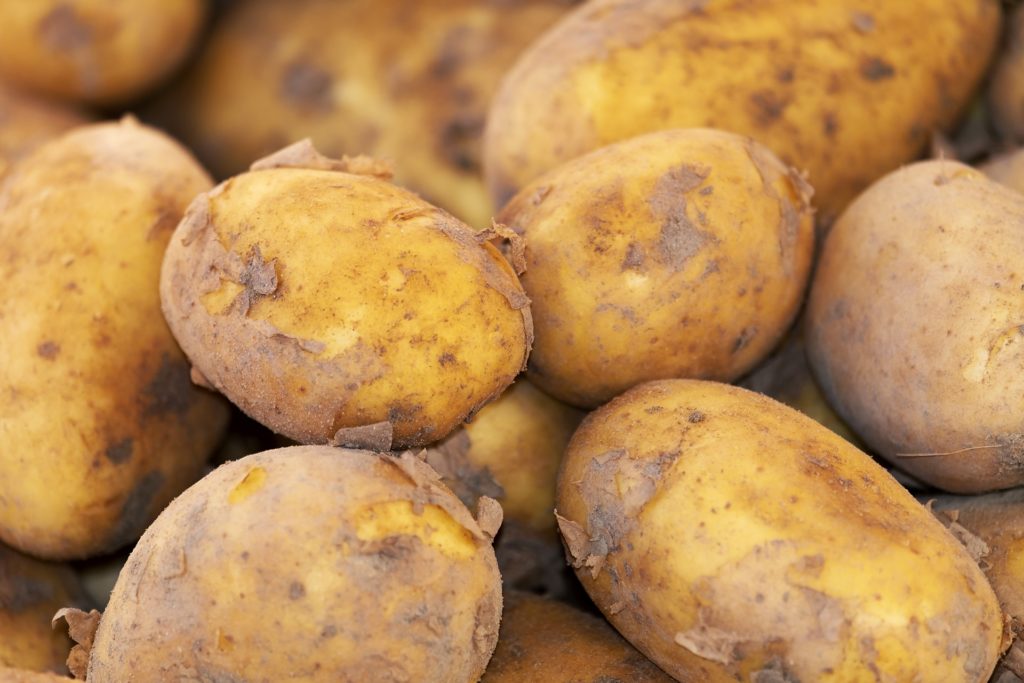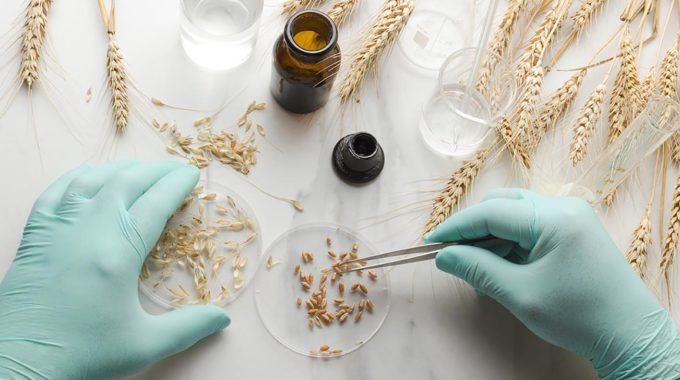Breeding the foods of the future
Wheat and potatoes are two of the world’s most important crops. Potatoes are the number one non-grain food product in the world, producing more food on less land faster than any other major food crop. Meanwhile, wheat covers more of the earth than any other crop and is the leading source of vegetable protein for humans worldwide.
These two essential crops are the focus of key research by the plant biotechnology team at Murdoch University’s Centre for Crop and Food Innovation in WA. By applying a series of new breeding technologies, researchers are honing in on opportunities to increase yields and reduce losses caused by pests, diseases and environmental conditions. The results have the potential to improve the diet, livelihoods and environment of people everywhere.

Perfecting the potato
Murdoch researchers are using gene editing technology to improve the dietary quality of potatoes. This is achieved by changing their genetic profile to adjust the ratio of two starches found in potatoes: amylopectin and amylose.
“Potato starch is naturally readily digestible and rapid glucose released means that most potatoes have a relatively high glycaemic index [GI],” explains Professor Mike Jones, Director of the WA State Agricultural Biotechnology Centre.
“The result is a rapid increase in blood sugar after eating potato, depending on the method of food preparation and the composition of the meal. Developing higher amylose potatoes with more ‘resistant’ starch can reduce the GI, and be beneficial to bowel health.”

The research is using new gene editing techniques to alter expression of key genes to develop potatoes with more resistant starch. The aim is to improve existing commercial potato varieties with health benefits for consumers in Australia and around the world.
Given the widespread consumption of potatoes, using technology to develop a crop that could have significant health benefits for people around the world through potential reductions in the development of diabetes and bowel cancer is pretty exciting stuff.
The research team is also in a unique geographical position, in terms of potato production and export, to lead the project. Western Australia enjoys proximity to growing markets in Asia, while its geographical isolation has enabled it to be free of the potato cyst nematode, a worldwide root pest of potato crops.

Weather-proof wheat
The team is also working to develop wheat varieties with increased yield and tolerance to environmental stresses such as frost damage and drought. These climatic conditions challenge farmers each year, especially in Western Australia. Advances in technology have allowed scientists to identify genes that contribute to frost and drought tolerance in wheat, and researchers are now working on ways to increase the expression of these key genes.

Shifting public perception
While public opinion and understanding of the potential benefits of gene research is remains limited, one of the major challenges of researchers and industry is to educate people on the differences between gene-edited crops and genetically-modified crops.
Gene editing is a process by which scientists analyse the plant’s genetic code and change one or more defined characteristics or traits without the presence of any additional DNA or altering anything else in the plant’s genetic make-up.
This tech provides researchers with a more precise form of plant breeding. All plant breeding involves genetic manipulation, but the term GM is applied when particular genetic characteristics are introduced, enhanced or deleted using genetically-engineered DNA.
Gene editing is not regarded as GM in many countries, and this is soon to be the case in Australia, Professor Jones says: “We are promoting consumer awareness and acceptance of gene-edited crops to help ensure better food outcomes for all.”









